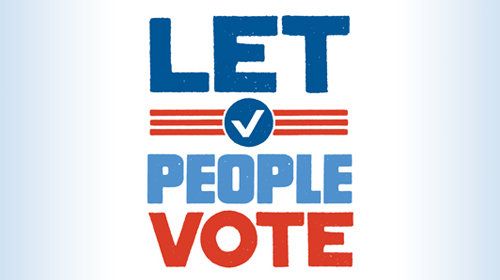Wisconsin’s Recall Election: State Law Makes Voting An Uphill Battle for Young Voters


You remember Wisconsin, right? It’s the place where last year a battle over proposed budget cuts – that would reduce employee benefits and collective bargaining rights – prompted the prolonged protests of thousands of people in the state’s capital, as well as the temporary self-exile of state senators to Illinois to delay a vote on the budget measure. Fiercely-held opinions on both sides of the issues prompted a gubernatorial recall petition drive.
Tomorrow, June 5, Wisconsin will hold this recall election – a rarity in U.S. history – in which Gov. Scott Walker will be challenged by Milwaukee Mayor Tom Barrett. This is predicted to be a very close election, but the turnout of many residents, particularly young voters, could be significantly diminished due to provisions of the state’s new voting law.
Under Wisconsin’s Act 23, voters are required to present one of a limited number of types of photo ID when voting either in person or with an absentee ballot; the residency requirement was increased from 10 to 28 days; and the fail-safe of corroboration for voters without proof of residence (like homeless residents) was eliminated.
Voters WILL NOT need photo ID to vote in the recall election tomorrow, because there are injunctions currently preventing the implementation of the voter ID provision of the law, but the new requirement for voters to reside in an election district or ward for 28 days prior to an election could discourage thousands of Wisconsin students from participating in the recall election tomorrow, because many of them have been moving to new residences over the past few weeks as the academic year draws to a close. While these students are still eligible to vote in the election, the confusion over the change in the law and where it requires highly mobile students to vote is causing concern about a precipitous drop in youth voter turnout.
If you are one of these impacted Wisconsin students, this resource from the ACLU of Wisconsin can help you know your voting rights for tomorrow’s recall election. The ACLU of Wisconsin will also be part of the Wisconsin Election Protection Coalition, operating a toll free hotline at 1-866-OUR-VOTE and a Facebook page, “Wisconsin Election Protection.” Call our hotline and “like” us on Facebook to share comments and concerns about your voting experience.
But even after clearing this hurdle, there could be several more obstacles in the path for young voters. If the state court injunctions are lifted, thousands of young voters in Wisconsin, like Sammi Meszaros, will be forced to bring themselves into compliance with the voter ID law rapidly.
Sammi, a freshman at Carthage College in Kenosha, Wisconsin, is one of the plaintiffs in the ACLU’s case challenging the constitutionality of Wisconsin’s photo ID requirement for voting. Under these laws nationally, potentially millions of U.S. citizens could be pushed out of the electorate, because not everyone has one of the limited forms of accepted photo ID. Moreover, a significant chunk of the population lacks the supporting documentation necessary to obtain such an ID, including many voters who cannot afford the additional costs of these primary documents or who cannot successfully navigate the bureaucratic challenges before the election.
For student voters in Wisconsin, the law has meant new detailed specifications for ID cards that have increased the risk of disfranchisement by administrative error. Although Wisconsin allows student IDs to be used under the new law, it requires that the ID bear the student’s name, a photo, the date of issuance, the student’s signature and an expiration date no later than two years after the date of issuance. At the time of the law’s enactment last May, none of the IDs being issued by Wisconsin colleges and universities met those criteria, which put Wisconsin more in the company of Tennessee, Texas and South Carolina – none of which will accept student ID cards for voting purposes at all.
When Sammi obtained a new Carthage College student ID two months ago, it was issued to her without an expiration date. After she learned that the lack of an expiration date could prevent her from voting, Sammi returned to the office and they provided her with an expiration date sticker for her ID. The staff working in the office either forgot to place a sticker on her card or utterly failed to realize that an expiration date on the ID is essential. All it takes is one administrative oversight, and Sammi, or another young voter like her, could be disfranchised. And even still, the validity of such stickers remains under a legal cloud, and the November election is fast approaching.
Young voters in Texas and South Carolina confront the same uncertainty about whether their states’ voter ID laws will be in effect in November, and if they would be able to comply with the laws in time. The Department of Justice objected to preclearance of both states’ laws under the Voting Rights Act, because of their disproportionate negative impact on minority voters, but both states have sued in federal court to implement their voter ID laws. The ACLU has intervened in both cases to ensure these laws never go into effect.
Please join us in continuing to fight to preserve the right to vote, and stay informed on voting rights in your state.
Learn more about voting rights: Sign up for breaking news alerts, follow us on Twitter, and like us on Facebook.

